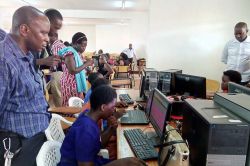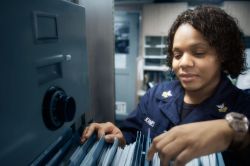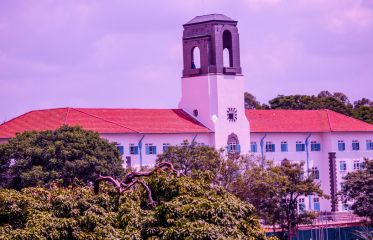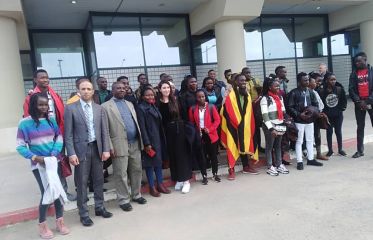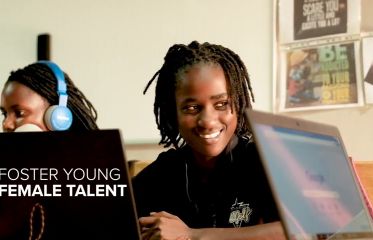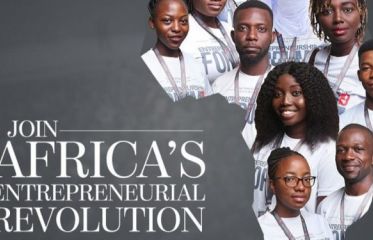Breaking News
- Ministry of Education and Sports Azerbaijan Government Scholarships For 2025-2026 Academic Year ...Read More
- Government Sponsorship Undergraduate Admission Lists 2025-26 for Makerere University ...Read More
- Ministry of Education And Sports: Egyptian Government Scholarships 2025-2026 Academic Year ...Read More
- Ground Breaker Full Scholarship for girls to study Software Engineering 2025 July Intake ...Read More
- Tony Elumelu Foundation Entrepreneurship Programme (TEEP) 2025 for young African Entrepreneurs ...Read More
- DESIGNING FUTURES 2050 International Design Competition 2025 (€15,000 prize) ...Read More
- Ground Breaker Full time Scholarship for girls to study Software Engineering 2025 Intake ...Read More
- Ministry of Education And Sports Algerian Vocational Training Scholarships for 2024-2025 AY ...Read More
- Ministry of Education and Sports Advert for the Algerian Government Scholarships for 2024-2025 ...Read More
- Uganda Dev Summit 2024 Live Stream ...Read More
Gayaza High Stretches hand for neighbouring UPE School
“Love your neighbour as you love yourself.” That is the second greatest commandment in Christian faith. Students of Gayaza high school have adopted this decree through a community project to teach pupils of the neighbouring Gayaza Church of Uganda (C.O.U) primary school.
I check into Gayaza High school on a Friday afternoon. It is very calm, as the students are still attending their daily classes. At 4:30pm, senior one students leave class earlier than the rest, to prepare for their first visit to the neighbouring Gayaza C.O.U primary school commonly known as Kadongo
They are ready to help their neighbours, younger at that, understand English and Mathematics. The students who have hardly spent a month at the school are excited about their first teaching experience.
Gayaza Girls go with books, pens and other scholastic materials they give to their hosts after the discussions.
The project is aimed at assisting pupils of Gayaza COU, a Universal Primary Education (UPE) school to improve their studying culture.
Their Senior One guest students teach English and Mathematics to the pupils for an hour every Wednesday and Friday evening, respectively.
“We were briefed about this activity when we joined the school, but I still feel so nervous. I have never stood in front of a class to teach,” Serena Oluka a student of Senior One says.
To their surprise however, they do not carry out classroom teaching like many had anticipated. It is conversational. The students are paired up with pupils from the primary school.
In their pairs, they are given a set of five questions, which they must complete in an hour. Depending on their group style, they go through the questions one by one, sharing views on how to go about each question.
For a particular group, which involved Lisa Barugahare of Gayaza High School and Evelyn Namanda of Primary seven, Namanda explained her answer to the question, while Barugahare explained whenever she got the answer wrong.
But some of the pupils are not fluent in English; therefore the Gayaza High school students use Luganda to help them solve the equations.
At the end of the discussions, the students then give feedback in a general session, on how they found the exercise.
“My partner could not run through the multiplication table with ease. I think the teachers need to teach the pupils the multiplication table and they need to fully understand the challenge the pupils are facing. I would like to be allowed to meet the teachers and we discuss this at length,” Barugahare says.
Gayaza high school deputy head,Ronald Ddungu
According to Ronald Ddungu the deputy head and Mathematics teacher at Gayaza high school, the project enables the students to connect with and understand the neighbouring community.
“Before we started the project in 2007, the students had a little understanding of the community around them. A survey conducted by the Senior Five class, which I was teaching revealed that the students were generally wasteful, self-centred, non-empathetic and had divisions of the rich against the poor,” he says.
Project genesis
After completing his course in project based learning at the American based International Education and Resource Network, as part of his research, Ddungu was required to come up with a scheme to support education at his school.
Ddungu, who was teaching senior five at the time, engaged his students to help him find an idea that would help the school and the entire community.
“Since Mathematics was also a problem, students suggested that we start a project where senior ones teach primary seven pupils of Kadongo. They said it would benefit the primary school and also inevitably introduce the students to the problems in the community,” he says.Upon suggestion by the students, the school then increased the out-of-class club activities to promote frequent interaction with the surrounding communities.
“We then visited the school, and presented the idea to the head master, who embraced it. Our first lot of students started the programme in 2008,” he adds.
After realising that the project was delivering its promise, the following senior one class, as part of their school requirements, were asked to report to school with copies of their best mathematics past papers.
With the help of mathematics teachers from Nyangabo Sub County, where the two schools are located; the best ten past papers were selected to make a book.
The school has since printed revision manuals with over 500 questions each and has given these to every pupil to revise mathematics daily.
Feeding the children
Being a UPE school, some of the pupils of Kadongo at times spend a day at school without a meal. Two years after the project kicked off, Gayaza high school girls ventured into agriculture where the grow maize in order to provide porridge to the pupils whenever they visited.
“We visited a farmer in Nnangabo, learnt how to grow maize and vegetables. We then started giving a cup of porridge to the pupils. It has become a culture, that we share a cup of porridge after the discussions,” he says.
But as the Chinese saying goes “give me fish and I will eat for a day; teach me to fish and I will eat for a life time.”
Ddungu says giving the pupils a cup of porridge is not sustainable, that they are encouraging the school to utilize their land to practice agriculture.
As part of the programme, Gayaza High also donates scholastic materials such as books, pens, rulers, and mathematical sets; sanitary towels too.
Starting a bursary scheme
Once the academic performance of the primary school improved, Gayaza High started a bursary scheme to support the best pupil each year, from Senior One to Four.
“The first two beneficiaries of the scheme are now in Senior Four. But it has become expensive for the school. So we call upon the public to support us through this cause,” Ddungu says.
“This year, one girl qualified but we did not get a funder and we did not give her, the well-earned chance. We feel so bad, but we hope to get some good funds to support them.”
He however, adds that the best student gets automatic admission at Gayaza High, as long as they have funding.
Experiences
Prossy Tendo, a Primary six pupil at Gayaza Church of Uganda Primary School is a testimony to the enormous benefits from the project.
“We are so many in our class. It is hard to ask the teacher to explain at times. But through this camping session with Gayaza High girls, I now understand a few things I had failed to frasp,” she says.
Rachel Nalubega a Senior Six student who was one of the first beneficiaries of the project, as a Senior One student years back, says participation in the community project has built her confidence and enhanced her interactive skills.
The school authorities acknowledged that the tutoring sessions provide a practical approach to learning.
“This is beneficial to both schools and increases the level of understanding of Mathematical concepts for both groups.” Richard Maseruka, a Mathematics teacher at Gayaza Church of Uganda primary school says.
Maseruka adds that the school’s population has increased from 250 pupils in 2007, to the about a thousand students currently.
Top Courses Currently Admitting
-
Bachelor of Journalism and Mass Communication
Ndejje University
-
Diploma in Pharmacy
Uganda Institute of Allied Health and Management Sciences (Mulago Paramedical)
-
Advanced Diploma in Health Management and Leadership
Uganda Institute of Allied Health and Management Sciences (Mulago Paramedical)
-
Bachelor of Social & Entrepreneural Forestry
Makerere University
-
Bachelor of Science in Land Economics
Makerere University









